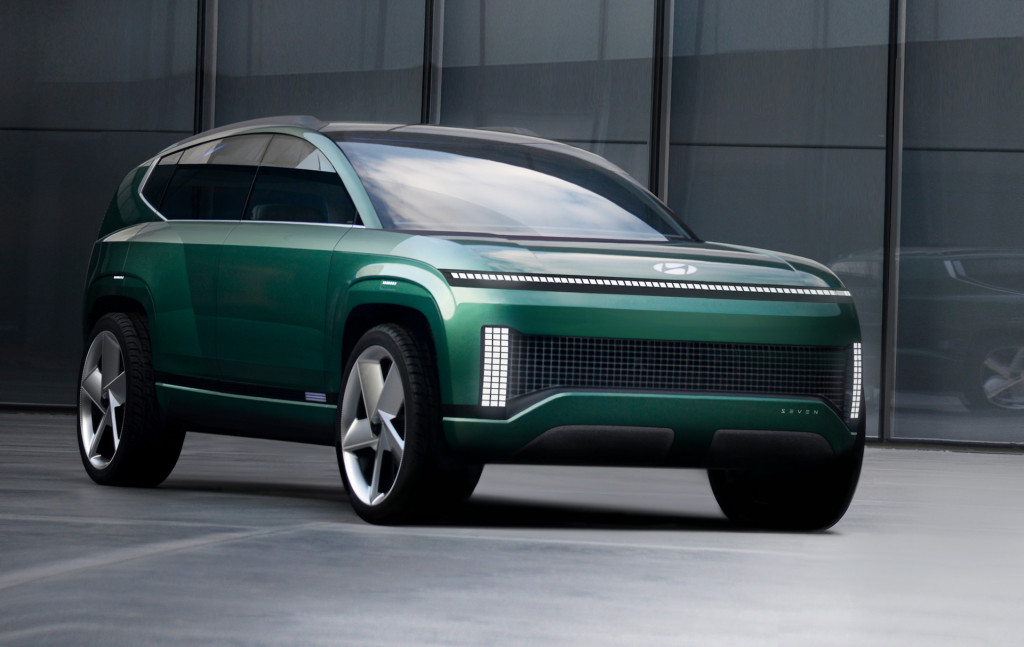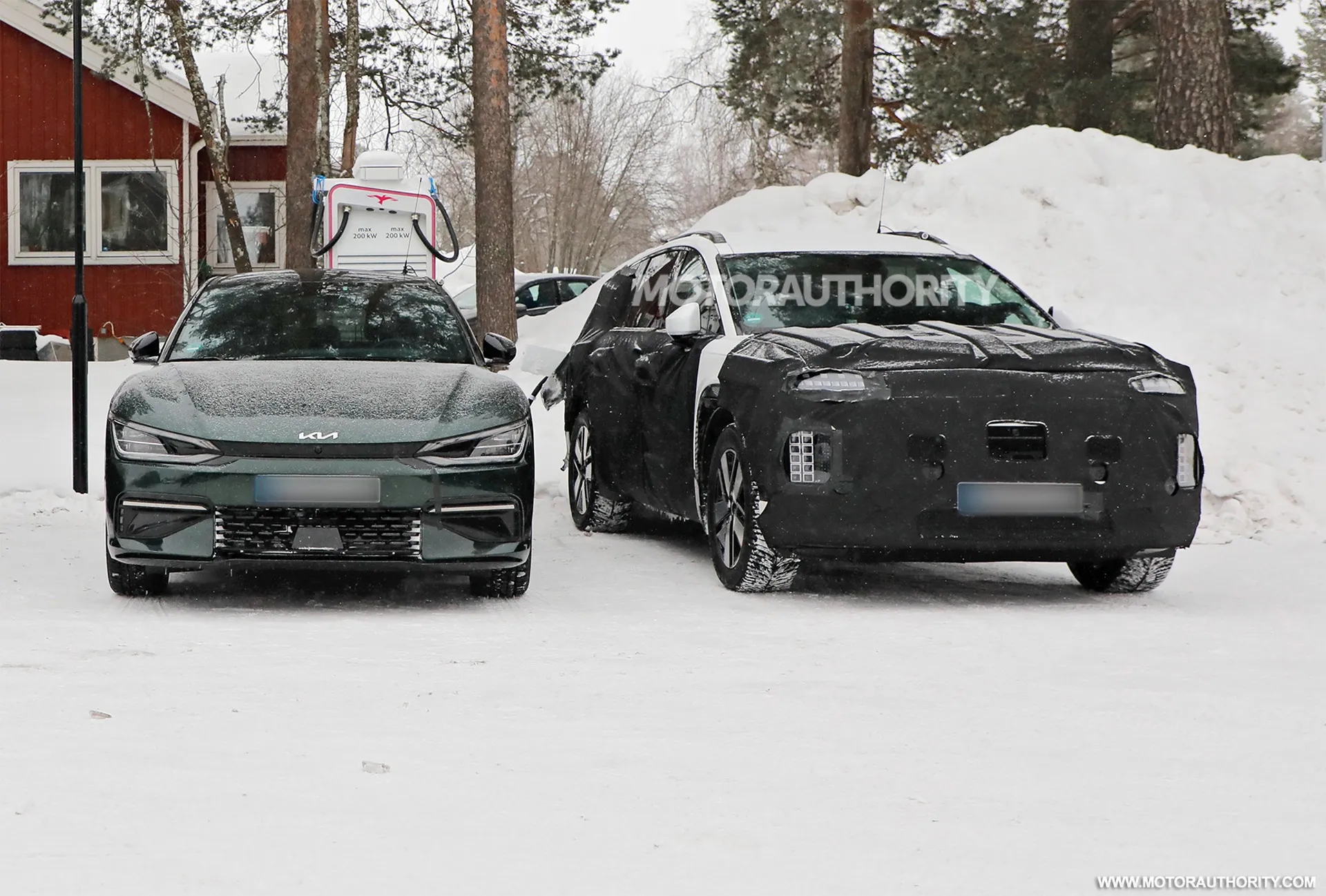Hyundai has been spotted testing a prototype for the production version of the Seven electric SUV concept shown at the 2021 Los Angeles auto show.
The vehicle, which was first announced during 2020’s launch of the Ioniq EV sub-brand, has been confirmed by the automaker to go on sale in 2024.
This means it will likely arrive as a 2025 model in the U.S., with the debut potentially happening soon. A name hasn’t been confirmed, but going by the concept’s name, Ioniq 7 is the most likely option.
The design of the production version has been toned down significantly compared to the concept, though the same swept roofline remains, as does the almost vertical tailgate. Conventional round wheel arches feature on the production version instead of the concept’s square design, albeit with square-shaped wheel-arch cladding. Conventional rear doors have also replaced the concept’s rear-opening coach-style doors.
Although the vehicle will be similar in size to midsize SUVs, including Hyundai’s own Palisade, packaging advantages of the EV platform mean cabin space should be closer to a full-size offering. The Seven concept had a long 126.0-inch wheelbase, though the production version’s wheelbase appears to be slightly shorter.
The Ioniq 7 will be a close relative of the boxy 2024 Kia EV9 launched last year. Genesis is also testing an electric GV90, which may also be related to the Ioniq 7 and EV9. The recently revealed Genesis Neolun concept may be a preview of the GV90’s styling.

Hyundai Seven concept
Hyundai hasn’t confirmed any powertrain specs for the production version of the Seven concept, though the numbers will likely match those of the EV9. The EV9 is offered as standard with a 76.1-kwh battery and rear-wheel drive. Above this is a 99.8-kwh battery that is available with either rear- or all-wheel drive. The highest range comes with the 99.8-kwh battery and rear-wheel drive, and is estimated by the EPA at 304 miles.
Hyundai is working on close to a dozen EVs for the remainder of the decade. Many of these will be based on a next-generation EV platform with standardized batteries and motors.

